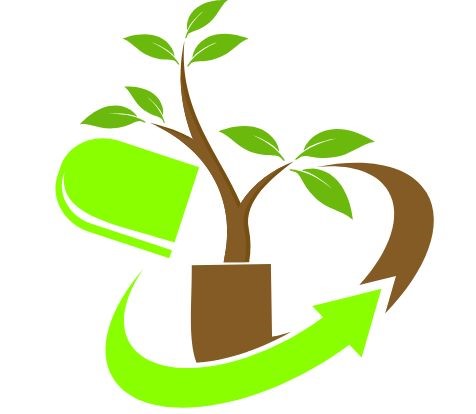Imagine your body is like a high-performance car: It’s designed to run efficiently and smoothly, but over time, parts start to wear out, accumulate dust, or get damaged. To keep everything running at its best, the car needs regular maintenance—changing the oil, cleaning the engine, and replacing worn-out parts. The same goes for your body. Inside your cells, things get damaged too. Whether it’s from aging, environmental stress, or simple wear and tear, cells can accumulate waste and malfunctioning components that slow down the body’s ability to heal and regenerate.
This is where autophagy steps in. It’s like an invisible, behind-the-scenes mechanic for your cells—your body’s built-in detox system. The term “autophagy” comes from the Greek words auto (self) and phagy (eating), meaning “self-eating,” but don’t let that sound alarm you! What autophagy really refers to is the process by which your cells break down and recycle their own damaged components to maintain optimal function. In essence, it’s your body’s way of getting rid of the junk that builds up over time, allowing you to stay healthy, energetic, and even youthful.
While we often think of detoxing in terms of juice cleanses or fasting, the real magic happens at the cellular level. Autophagy is a natural, ongoing process that happens every day—sometimes without us even realizing it—and it plays a central role in keeping us feeling our best.
So why should you care about autophagy? Well, this process doesn’t just help with basic maintenance—it’s been linked to a whole host of health benefits, including improved immune function, better brain health, reduced inflammation, and even a longer, healthier life. Understanding how autophagy works and how to encourage it could be one of the most powerful tools in your wellness toolkit.
In this article, we’ll dive deeper into the science behind autophagy, explain why it’s so important, and give you practical tips on how to activate this natural “self-cleaning” process to support your health and vitality. Ready to learn more? Let’s get into it!
What is Autophagy?
Autophagy (pronounced aw-toh-fah-jee) is a process your body uses to clean out damaged cells, essentially “detoxing” itself at a cellular level. The word comes from Greek, meaning “auto” (self) and “phagy” (eating), so it literally translates to “self-eating.” While that may sound a little extreme, it’s actually an incredibly important function that helps your body maintain balance and optimal health.
Think of it like a recycling program for your cells. Over time, cells accumulate waste products—damaged proteins, old organelles, or even toxins—and these can interfere with the proper function of your body. Autophagy acts like the cleanup crew, identifying and getting rid of these “cellular trash,” which helps keep everything running smoothly.
How Does Autophagy Work?
To put it simply, autophagy is like your body’s internal waste disposal system, but on a microscopic level. Here’s how it works:
- Cellular Stress Signals: When cells experience stress—whether from damage, infection, or even a lack of nutrients—they send a signal that it’s time for a cleanup. It’s like the cell is raising its hand and saying, “Hey, I need some maintenance over here!”
- The Formation of the Autophagosome: Once the signal is received, your body starts to break down and re-use damaged parts of the cell. Tiny structures called autophagosomes form around the waste materials, like wrapping up junk into a trash bag.
- Recycling and Renewal: These autophagosomes then merge with another structure called the lysosome (think of it like a trash compactor). The lysosome breaks down the waste inside, recycling valuable components and turning them into something useful for the cell. This process not only clears out the trash, but it also generates energy and building blocks for the cell to function properly.
- Cell Regeneration: Over time, this constant cycle of cleanup and renewal helps keep the cells fresh and fully functional. It’s like regularly servicing a car engine to keep it running smoothly, ensuring that everything from your skin to your brain stays healthy.
Why is Autophagy Important?
Autophagy is a vital process because it helps prevent the accumulation of damaged or malfunctioning cells, which can lead to a variety of health problems. Here are some key benefits of autophagy:
- Fighting Infections and Disease: Autophagy helps your body fight off infections by eliminating harmful pathogens, like bacteria and viruses, that might be hiding inside cells. It’s also been shown to help protect against certain diseases, including neurodegenerative conditions like Alzheimer’s and Parkinson’s.
- Preventing Aging: As we age, cells naturally get damaged by oxidative stress and other factors. Autophagy helps clear out these damaged cells before they cause problems, potentially slowing down the aging process and reducing the risk of age-related diseases.
- Supporting Muscle Health: When you exercise, your muscles experience microtears, and the body’s natural repair process relies on autophagy to clean up damaged muscle cells and rebuild them stronger. This is why fasting or periods of low food intake (which stimulate autophagy) can sometimes enhance muscle recovery.
- Reducing Inflammation: Chronic inflammation is linked to numerous health issues, including heart disease and diabetes. Autophagy can help reduce inflammation by clearing out dysfunctional cells that contribute to this condition.
How Can You Boost Autophagy?
Now that you understand what autophagy is and why it’s so important, you might be wondering: How can I encourage my body to activate this process? The good news is there are a few simple ways to naturally boost autophagy:
- Intermittent Fasting: This is probably the most well-known way to trigger autophagy. When you fast, especially for 16–24 hours, your body begins to rely on its internal resources, initiating autophagy to recycle old cells and provide energy. Intermittent fasting has become popular not just for weight loss, but for its potential longevity benefits.
- Exercise: Physical activity, especially intense exercise like weightlifting or high-intensity interval training (HIIT), has been shown to increase autophagy. Exercise creates stress on the body that signals cells to clean up and regenerate.
- Low-Carb and Ketogenic Diets: Reducing carbohydrate intake can push your body into a state of ketosis, where it starts burning fat for fuel instead of glucose. This metabolic shift can also promote autophagy, especially during fasting or periods of low calorie intake.
- Adequate Sleep: Don’t underestimate the power of sleep. Good, quality rest is essential for cellular repair, and autophagy is more active during deep sleep. So, make sure you’re getting enough shut-eye to support this process.
- Nutrient-Dense Foods: While fasting is one way to encourage autophagy, what you eat also matters. Eating a nutrient-dense diet rich in antioxidants (like berries, leafy greens, and nuts) can reduce oxidative stress and support healthy cell turnover.

Autophagy is a fascinating and incredibly important process that helps keep your body in tip-top shape. From fighting off infections to slowing the aging process, it plays a crucial role in maintaining overall health. By incorporating practices like fasting, exercise, and a balanced diet, you can support your body’s natural detox system and enjoy the benefits of a more vibrant, energetic life.
So, the next time you hear someone mention autophagy, you’ll know exactly what they’re talking about—and why it’s such a big deal for your health!







